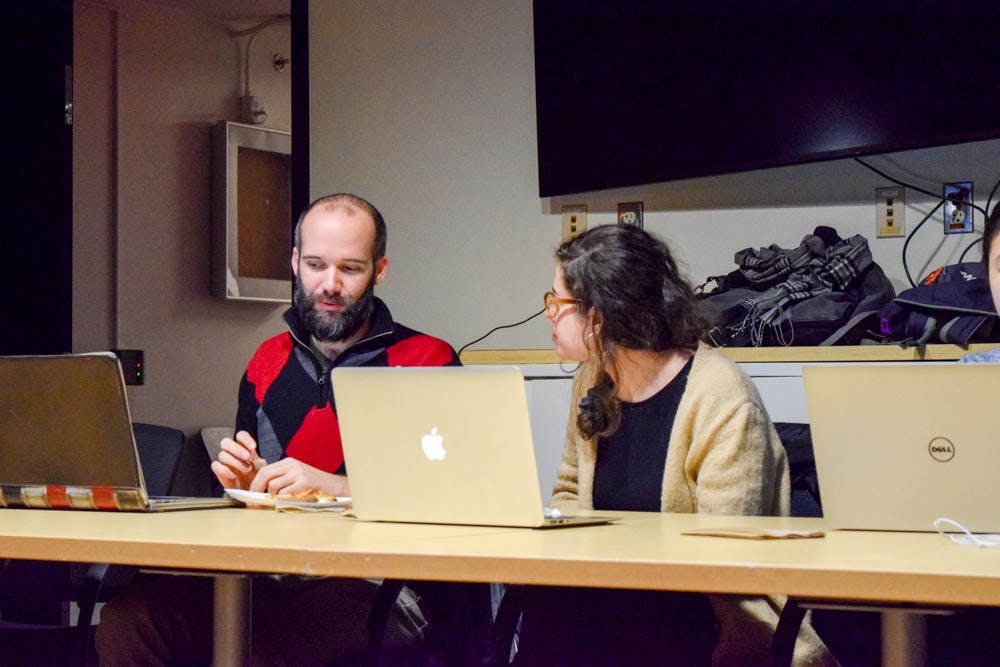The Graduate Student Council heard updates on a bias incident reporting system and clarified the timeline for unionization at its last general body meeting of the fall semester.
Shay Collins, director of institutional equity and community engagement, briefed graduate students on the new online reporting form for the Brown community that will be released January 2019. The form will be an opportunity for “anyone affiliated with Brown” to “report evidence of bias” such as discrimination or harassment, they added.
Reports can be made anonymously, and Collins encouraged reporting any incidents of bias. “All data is good data,” they said.
After a report is filed, a team consisting of faculty, staff, undergraduates, graduate students and medical students will examine the complaint, Collins said. Though the team will make recommendations to the University on how to follow up on reports, it cannot enforce sanctions, they added. In most cases, adjudication would have to go through University Human Resources, Collins said.
In response to a question from a graduate student present, Collins said that they “haven’t had communications about” compensation for graduate and medical students on the review team. The number of hours students will dedicate to reviewing reports would also need to be considered in this decision, they added.
During the meeting, the GSC Executive Board also spoke to a potential timeline for unionization, though it is unclear how long it will take until a contract is finalized with the University, said Alastair Tulloch GS, president of the GSC. Brandeis University took 10 months to negotiate a contract and New York University needed 18 months, Tulloch added. Tulloch estimated that it takes 14 to 18 months on average to reach a contract between universities and graduate student unions.
“It really depends on how long it takes (Stand Up For Graduate Student Employees) and (the American Federation of Teachers) to organize” and set up governing bodies, Tulloch added.
Tulloch also clarified that the bargaining unit comprises graduate students who have current appointments as either teaching assistants or research assistants. Currently, about 900 such graduate students qualify.
Tulloch also answered questions about how students could join the union. To do so, graduate students would need to sign a membership card, Tulloch said. Regardless of whether members of the bargaining unit join the union, they might still need to pay union dues, though this is dependent on the terms of the contract, Tulloch added. In response to a question on whether students could “unsign” their membership cards, Tulloch cited conflicting information and deferred to SUGSE for answers.
Toward the end of the meeting, Kaitlin Wilcoxen GS, chair of communications for the GSC, introduced revisions to the GSC’s bylaws. These revisions included representation for international graduate student groups, working group funding and event funding for graduate student groups.
Following recent proposed changes to Title IX by the U.S. Department of Education, members of the GSC will attend a town hall today at 6 p.m. in Friedman Hall to explain policy changes, Tulloch said.





